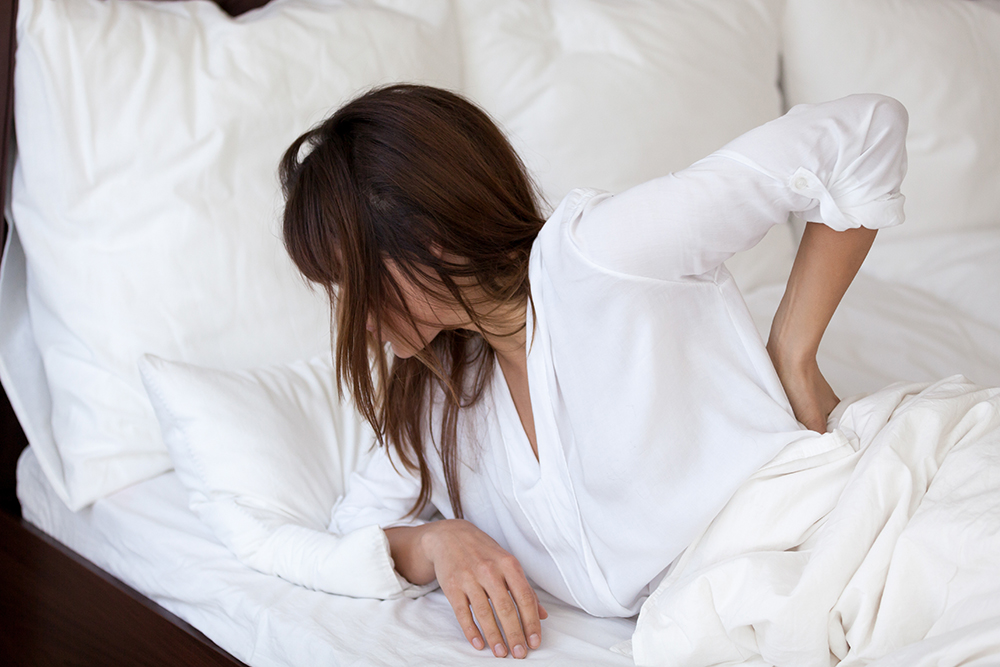Waking up with feelings of misery, pain or dissatisfaction means that something is wrong, but what if we are innocent and it’s a fault of our beds?
Organised by The Sleep Council, March is supposed to be the National Bed Month and reminds us why we should take care of ourselves and have a good sleep on a regular basis.
There is one thing which can change our lives rapidly: a proper bed.
Jade-Joana Green, who works at St. Mary’s Hospital in London told us why we should care about our sleep: “A good night’s sleep is important because it’s a time when our bodies repair and grow as they need to, such as blood vessels and cuts. Sleep affects our health in a number of ways, sleep deprivation is, for example, linked to heart disease, kidney failure, or diabetes, and can also affect our mental health. It is also a way of how our bodies are telling us what is wrong, if we have sleep disturbances, we are more likely to be stressed.
“There might be, of course, other problems too. Your lower back and upper back can also be damaged due to lack of support, which in bad cases may even damage the internal organs such as the kidneys and lungs due to pressure.”
To overcome these problems, The Sleep Council established since 1995 as an impartial organisation, gives us five tips on how to have better sleep.
The first tip is about a change, as it’s inevitable if there are certain signs like these: Is your mattress wobbly, making weird sounds, or just looks hideous after eight years of laying on it? Well, maybe it’s the right time to do something about that. Healthy life isn’t only about diet and exercise, but quality and comfort as well.
“When people are sleeping on a bad unsupportive mattress for years, it can slowly start to cause bad sleeping posture and depending on the amount of time they spend in their beds, it can start to realign their spine, additionally a mattress which is too firm can do the same by pushing pressure points,” said Jade-Joana.
The second tip should encourage you to create a friendly environment, which will help you to achieve a proper sleep. Cool, dark, quiet and clutter free space should do just enough!
Anxiety, depression or stress are also connected with our sleep. “When we sleep our unconscious mind is at work, so if we are stressed or sad, this will show through dreams and disturbed sleep,” she said and continued, “if we are worrying about something that is playing on our mind this will wake us up and we may find it hard to go back to sleep. This could also be shown through nightmares.”
Thinking and possibly changing our activities before bed is the third tip. This could include a nice warm bath, gentle stretching and yoga, calming scents, or meditation with candles. There are also relaxing sounds you can always try like rain in the forest, sound of a camp fire, or wind chimes.
The fourth tip is bit harder to accomplish as it urges us to improve our lifestyle. Cutting down on sugar, caffeine or alcohol can change a lot. Too much alcohol, for example, might play havoc with sleep patterns, as it can wake us and take away from us one of the best parts of our sleep, the dreams.
Jade-Joana warned: “Waking up often during the night might have serious consequences. It will cause your body clock to become disturbed, meaning you sleep at hours that you should be awake and vice versa. When your body clock is unaligned it can cause a lack of endorphins and Vitamin D. That causes depression and other mental illnesses, as well as bone thinning and other serious conditions.”
The final tip recommends us to keep a sleep diary. It might be useful for us to see the progress, if there is any, or we could be able to figure out what’s going on wrong with us.
There are many things we can do and feel better because of them in the morning. It’s always worth it to take small steps at least.
“Overall, I believe that a good mattress can help for sure, if your sleeping posture is aligned, you’re much more likely to sleep through,” she added.
For additional information check the website of The Sleep Council!

